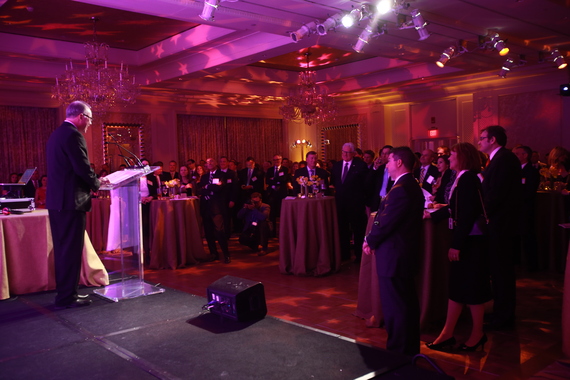April 2nd is an important day in the calendar of autism advocates; a day designated by the United Nations as World Autism Awareness Day (WAAD). The day heralds a month of events and activities aimed at increasing awareness and inclusion of people with autism. It turns out that April 2nd is also an important day for Massachusetts General Hospital, and its Aspire autism program. On that day, the hospital holds the Aspire Gala, the biggest fundraiser of the year for the hospital, with $2.1 million raised this year. Aspire's focus on helping people with autism succeed in schools and workplaces is particularly relevant, given this year's WAAD theme of employment. The fundraising helps Aspire support the 330 children, teens, and adults with autism who it serves. With autism affecting 1 in 68 children, that is just a drop in the ocean. The impact of Aspire, however, is magnified by its consultation with 22 school districts, and its workshops for professionals with more than 750 attendees each year.
Why is employment a critical issue for people with autism?
Let's start by comparing the national unemployment rate of 5.5%, to the 80% unemployment rate for autistic people. Is this a problem? With over 1.5 million Americans having autism, and half a million children entering adulthood in the next decade, you bet. Even among people who often obtain special education services, like individuals with learning disability, emotional disturbance, and speech/language impairment, young adults with autism have the lowest levels of paid employment. We critically need programs, like Aspire, that help to develop the skills and tools that will enable people with autism to obtain employment and access the right educational resources in the years that precede the job search. Programs that focus on building social, educational, and vocational skills remain in short supply, proving to be a major barrier for granting independence to people with autism.
Something about the Gala
There was something that was particularly impressive about the Gala, and that was the active involvement of the Aspire Interns, people with autism who work for partner businesses but have additional resources to help them navigate the work environment. The interns gave talks, engaged with attendees, and led the charge to start the dance floor proceedings. I was particularly impressed with several of the interns who were assertive and confident, readily giving me their business cards and talking to me about the skills that they had developed as a result of the program. A couple of interns had done very well in the educational system, holding advanced degrees from prestigious Boston universities.
Aspire also serves younger children with a combination of "discovery groups" where the focus is on learning to play (and playing to learn), and also adventure summer camps. However, I was particularly interested to learn about the approaches that they adopt to help people succeed in college, and the job market.
Confident for College
The approach for young adults entering adulthood is appropriately multifaceted. For example, the College Boot Camp helps improve time management skills, organizational strategies, and communication. It also helps to explain to high school graduates how colleges are structured differently. The boot camp is bolstered by the College Mentorship program for freshmen and sophomores, a program helping to target social and executive functioning skills to improve integration into college life.
Empowered for Employment
A range of employment-related groups also help improve the transition to the work environment. The transitions program helps older teens and young adults with both team building and on-site job coaching. Participants can volunteer to work for 2 days per week on a job site. Aspire also provides internships for adults with autism to work in a range of Boston businesses, while receiving extra support and mentorship to navigate the work environment. Helping to round off their services for adults, there are integration groups for adults that help to discuss relationships, health issues, and independent living skills. In this context, the groups help adults practice skills within the group as part of a community of learners.
The Autism "Gap"
The work of Aspire, and many other autism organizations, seeks to address the autism "Gap". The "Gap" is a topic that I often talk about, and write about. The autism "gap" is chasm of care and services that lies between families, health care, education, and social services. Until we address this "gap" with a coordinated national autism strategy, the work of organizations like Aspire remains critical.

